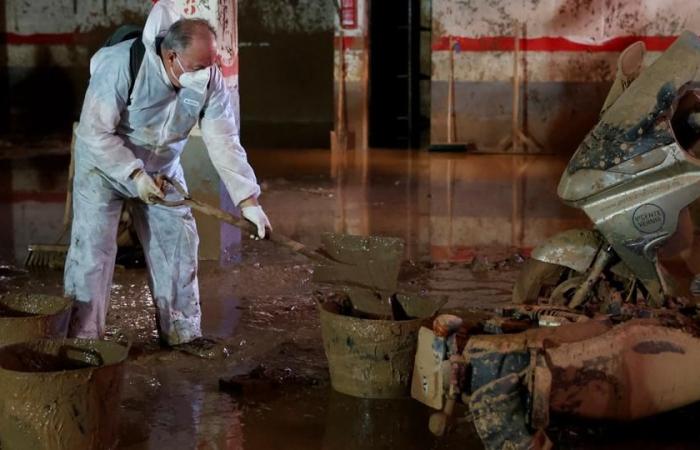Spanish authorities approved this Thursday a four-day “paid climate leave” to avoid travel in the event of an alert linked to a meteorological risk. A decision which comes about a month after the floods which left 230 dead.
A new system to protect residents in the event of a disaster. This Thursday, November 28, the government approved the establishment of a four-day “paid climate leave” to avoid travel in the event of an alert linked to a meteorological risk.
An event which comes about a month after the floods in Valencia which caused the death of 230 people. Thus, this new system aims to “adapt Spanish labor law” to the “climate emergency” context, explained Labor Minister Yolanda Diaz on public television RTVE.
It will allow workers to benefit from four days of leave, paid by the State, in the event of an alert issued by the authorities, whether “a town hall, a region or the central government », she continued without providing further details relating to the type of alert or the conditions to be met, on the part of employees, to be able to benefit from it.
Several companies have come under criticism after the floods that devastated the south-east of Spain on October 29, for having asked their employees to stay at work despite a red alert issued by the National Meteorological Agency (Aemet ).
“No worker should take risks”
From now on, “from the moment an authority, whatever it may be, indicates that there is a risk in travel, employees will have to refrain from going to work,” assured Yolanda Diaz, for whom “no worker must not take risks.
If the maximum duration of this new climatic leave cannot exceed four days, companies will have the possibility, after this period, of resorting to partial unemployment schemes, which already exist in the event of force majeure according to the executive.
According to specialists, “the cost of this type of event could double by 2050”, recalled the Minister of the Economy Carlos Cuerpo at the end of the Council of Ministers, during which a new aid package of 2.3 billion euros was adopted for the victims.
In this context, “we must continue to progress in terms of mobilization, financing and investment to adapt and be more resilient in the face of this type of event” and “minimize their impact”, he said. added.







